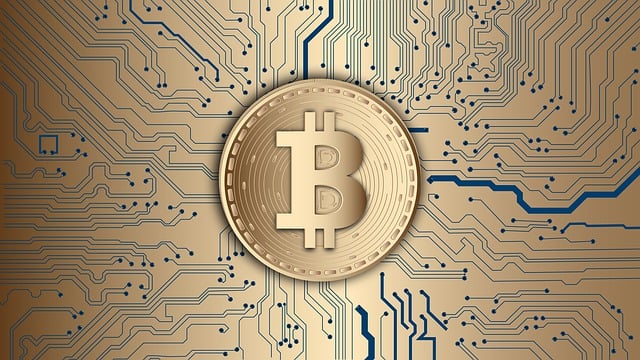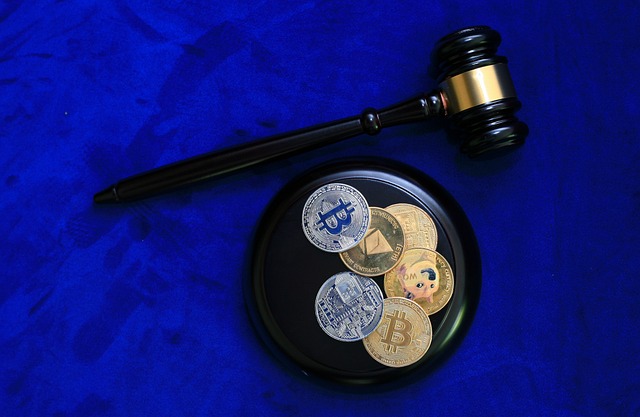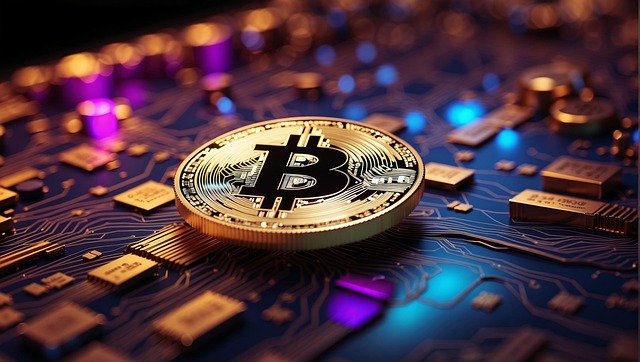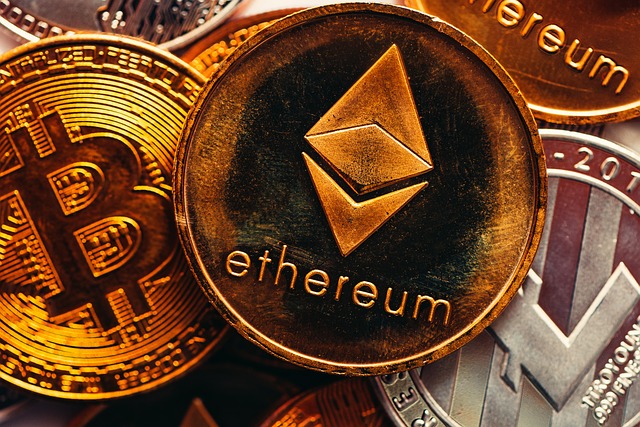Decentralized Finance (DeFi) leverages blockchain technology and peer-to-peer interactions to transform traditional financial systems by automating operations through smart contracts, enhancing transparency and security. This innovative approach promises to make global financial services more accessible, affordable, and efficient, fostering trust and reducing fraud. DeFi's potential impact includes increased autonomy, reduced fees, and enhanced security for users managing assets, borrowing, lending, and investing, while democratizing access to financial tools globally. However, navigating DeFi requires careful risk management due to market volatility and regulatory uncertainty.
“Welcome to an exploration of decentralized finance (DeFi), a revolutionary force transforming traditional financial systems. In this comprehensive guide, we unravel the basics of DeFi, its rapid ascent and disruptive nature, and its profound impact on global economies. From understanding how default events in centralized systems inspire DeFi’s growth to uncovering its immense potential and navigating associated risks, this article offers an insightful journey into the world of decentralized finance and its potential impact.”
- Understanding Decentralized Finance (DeFi): Unlocking the Basics
- The Rise of DeFi and Its Disruptive Nature
- How Default Impacts Traditional Financial Systems
- Exploring DeFi's Potential: Opportunities and Benefits
- Navigating Risks and Challenges: A Balancing Act in DeFi
Understanding Decentralized Finance (DeFi): Unlocking the Basics

Decentralized Finance, or DeFi, is a revolutionary concept that aims to recreate traditional financial systems using blockchain technology and peer-to-peer interactions. By removing intermediaries like banks, DeFi platforms enable users to directly access financial services such as lending, borrowing, trading, and more, with enhanced transparency and security. This innovative approach has the potential to significantly impact the global financial landscape by making financial products more accessible and affordable to a broader range of individuals and institutions.
At its core, DeFi leverages smart contracts—self-executing agreements with predefined rules—to automate and facilitate various financial operations. These contracts are deployed on decentralized networks like Ethereum, ensuring that all interactions are recorded on a public ledger, often referred to as the blockchain. This transparency fosters trust among users, reduces the risk of fraud, and empowers individuals to take control of their financial assets. With DeFi, the power shifts from centralized institutions to the hands of the people, promising a more inclusive and efficient financial ecosystem.
The Rise of DeFi and Its Disruptive Nature

The advent of decentralized finance (DeFi) has marked a significant shift in the financial landscape, introducing a new era of digital money and innovative lending/borrowing platforms. This revolutionary concept leverages blockchain technology to create open-access financial systems, eliminating the need for traditional intermediaries like banks. DeFi’s potential impact is profound; it promises greater financial inclusion by democratizing access to various monetary tools. Anyone with an internet connection can participate in this decentralized economy, fostering a more inclusive and transparent system.
DeFi’s disruptive nature lies in its ability to disrupt established financial models. It challenges the traditional centralized banking system by offering peer-to-peer transactions, smart contracts for automated processes, and decentralized exchanges for trading cryptocurrencies. This shift not only empowers individuals but also introduces new levels of security and efficiency through cryptographic verification. DeFi’s rapid growth indicates a growing demand for alternative financial services, potentially reshaping the way money moves globally.
How Default Impacts Traditional Financial Systems

The concept of default, while often associated with loan repayment failures in traditional financial systems, holds a different and potentially transformative significance in the realm of Decentralized Finance (DeFi). In DeFi, the absence of a central authority or intermediary creates unique challenges and opportunities. When a borrower defaults on a decentralized lending platform, it doesn’t merely result in financial loss for a single entity; instead, it disrupts the entire network’s equilibrium. This is because DeFi platforms operate on smart contracts, which automatically trigger consequences when conditions are met.
In traditional systems, a default might lead to legal battles and lengthy recovery processes. However, in DeFi, a default could catalyze innovative solutions. For instance, it may prompt the development of more robust credit assessment models or alternative risk management strategies. The decentralized nature of finance allows for faster response mechanisms, where smart contracts can automatically reallocate funds, adjust interest rates, or trigger collateral liquidation to minimize losses. This potential impact on how defaults are handled in DeFi could lead to a more resilient and efficient financial system.
Exploring DeFi's Potential: Opportunities and Benefits

Decentralized finance (DeFi) represents a paradigm shift in the financial landscape, offering unprecedented opportunities and benefits. By removing intermediaries like banks, DeFi enables direct peer-to-peer transactions, fostering inclusivity and accessibility for individuals worldwide. This innovative approach leverages blockchain technology to create open, transparent, and efficient financial systems.
The potential impact of DeFi is profound, promising increased financial autonomy, reduced fees, and enhanced security through cryptographic verification. It empowers users with tools to manage their assets, borrow, lend, and invest without relying on traditional financial institutions. This democratization of finance has the power to drive economic growth, foster global financial inclusion, and reshape the way we interact with money in the digital age.
Navigating Risks and Challenges: A Balancing Act in DeFi

Navigating the world of decentralized finance (DeFi) involves a delicate balancing act, as it presents both significant risks and immense challenges. One of the primary concerns is the potential impact of market volatility on investor funds. DeFi platforms, despite their innovative nature, are not immune to economic fluctuations, and sudden changes can lead to substantial losses for users. Therefore, developers and investors alike must implement robust risk management strategies to safeguard digital assets.
Moreover, regulatory uncertainty adds another layer of complexity. As DeFi continues to gain traction, traditional financial regulators are grappling with how to oversee this new and decentralized landscape. This lack of clear guidelines can create challenges for projects, leading to a cautious approach in terms of adoption and investment. However, navigating these risks is crucial for unlocking the full potential impact of DeFi, fostering trust, and encouraging widespread digital economic participation.
Decentralized finance (DeFi) has emerged as a disruptive force, transforming traditional financial systems with its innovative approach. While understanding and navigating the risks are crucial, the potential impact of DeFi on global economic accessibility and efficiency is undeniable. As the rise of blockchain technology continues, exploring and harnessing DeFi’s opportunities could revolutionize how we interact with money, ultimately fostering a more inclusive and transparent financial landscape.
